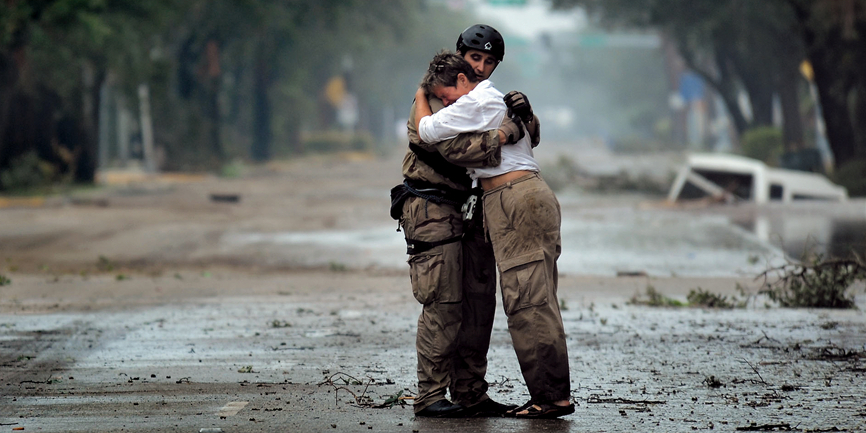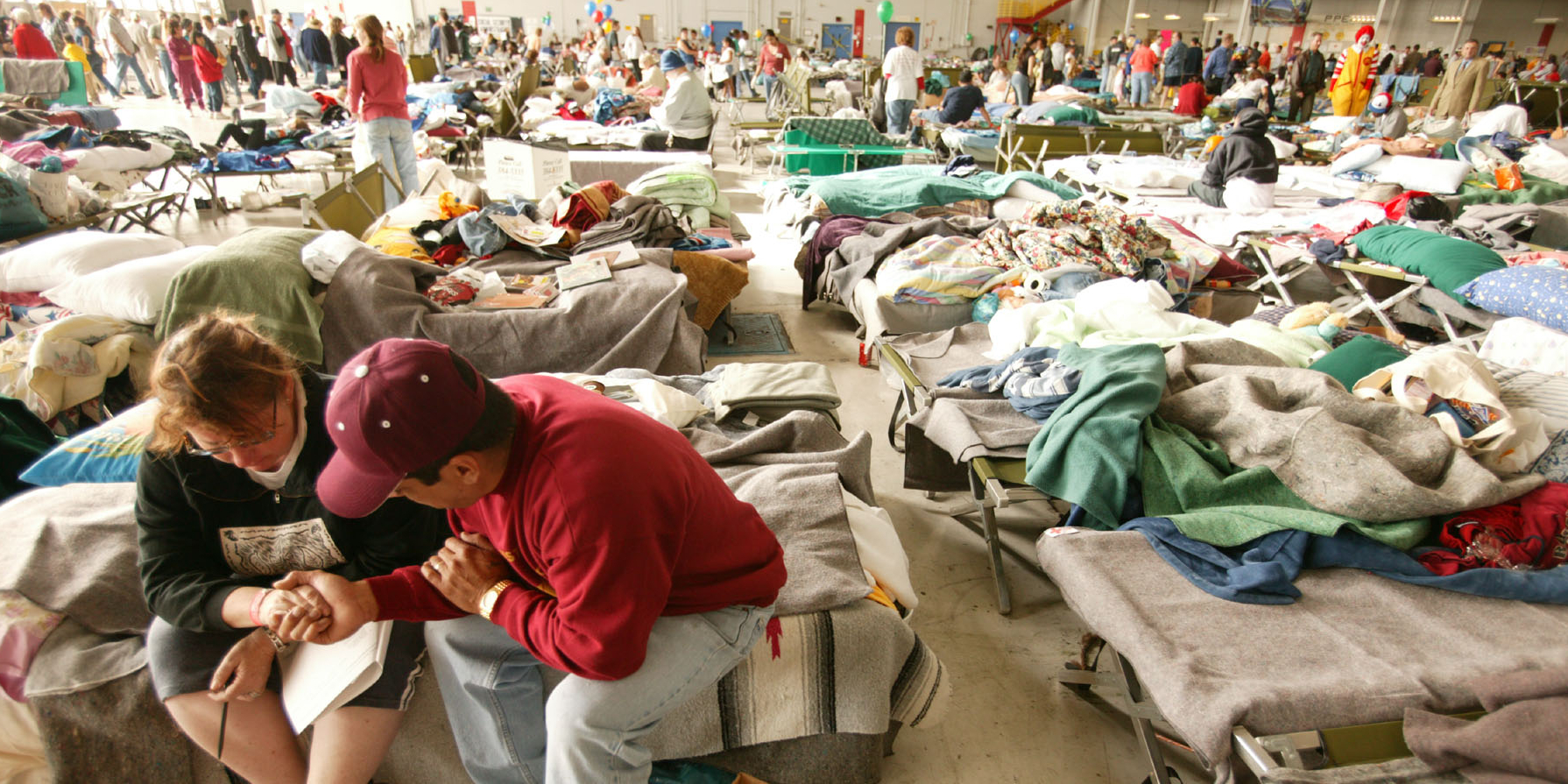Empathy is a concept banded around extensively these days—and rightly so. Empathy is a major resilience-building ingredient in our efforts to focus on others’ needs, de-escalate, facilitate conciliation and dispute resolution, reduce inter- and intra-communal tensions, and just walk away from conflict. It is difficult to imagine a civilization without empathy.
The proven benefits of empathy are felt mostly in its absence: bullying at work and school, road rage, and plain acts of belligerent unkindness dot our days, making a complex life in crowded, multi-cultural communities that much more difficult.
But certain professions, including healthcare providers, law enforcement, social workers, and NGO volunteers (among others), often fall prey to an unexpected yet dangerous peril: depletion of empathy.
Just like physical faculties, many of our mental faculties can be depleted, often without our noticing it and always with an attendant cost. The more a person or an organization deals with human crises, with manifestations of physical and psychological suffering, poverty, homelessness, drug addiction and other forms of substance abuse, the more susceptible this person/organization will be to empathy depletion and its resultant empathy fatigue.
A nurse in a clinic working with cancer patients stands a permanent risk of prioritizing patients’ feelings and needs over his/her own work requirements and duties, increasing the risk, on the one hand, of experiencing low-level depression, generalized anxiety, emptiness, alienation and similar symptoms, and on the other hand, experience impeded ability to make proper professional decisions while caring for patients.
A law enforcement professional, constantly exposed to victims of physical and emotional assaults, such as rape victims, may experience symptoms of “burnout,” expressed as mental and/or physical fatigue, substance abuse and even suicidal thoughts. Such a condition might imped the professional’s ability to perform, creating a personal and organizational liability.

In short, like every resource, empathy has its limits, and it’s essential we recognize them before they start hurting us and others. When empathy is depleted, we stand an increased risk of falling into unexpected traps.
Empathy Exhaustion – Intense cognitive challenges deplete our cognitive resources and expose us to mistakes and missteps; this is exactly what happens with empathy. Healthcare providers, nursing staff in particular, fall victim to empathy exhaustion most often. Sometimes called “compassion fatigue,” empathy exhaustion can lead to extra stress, burnout, absenteeism, administrative and patient-care mistakes, and other errors of omission. Dedicated managers, NGO, animal shelters, and law enforcement professionals often exhibit signs of empathy exhaustion, like impatience, aggressiveness, lack of attention to details, and violent reactions—all of which can be detrimental to the public’s good and to the professional’s physical and mental wellbeing and career.
Self-Depletion – Empathy tends to deplete itself (in addition to depleting energy and cognitive resources). Focusing on providing empathy to people close to us at work or at home can reduce our ability to empathize and support people outside of our in-group. From here, the distance is shorter than we want to believe for active and passive out-group bias, and anti-social behavior, such as dehumanization, hatred and even torture.
Conflict of Interest – Research demonstrates that cheating on behalf of someone else is easier than cheating in the service of ourselves. Empathy toward people at work, for example, can inhibit whistleblowing, ease participation and collaboration in unethical behavior, and in general, lead to lapses in ethical judgement. This type of empathy challenge happens frequently in highly internally bonded organizations, such as police, the military and other outfits where the wellbeing of teammates carries a premium. We are loath to admit it, but such situations, while they are often painted as collegial loyalty, support for the “team” and other solidarity-demonstrating behaviors, actually fracture the ethical fiber of the organization, create unhealthy dependencies, and promote a whole spectrum of ethical and even criminal infractions.

So what can we do to detect and mitigate against the negative impact of empathy exhaustion? It turns out that there are several, rather simple steps that we can take:
Develop an “Empathy Depletion Meter” – If you, your colleagues or subordinates work in empathy-demanding environments, make sure every individual is aware of the possibility of running into an empathy depletion situation. Discuss the depletion symptoms with your colleagues periodically (every week if possible); create an awareness—and even more so, a sensitivity—to the warning signals of a creeping empathy overload; and empower a culture of introspection, reporting and discussion.
Create “Empathy-Free” Intervals – Literally “take a break” from empathy-related tasks, and encourage your colleagues and employees to do the same. Make sure that people in empathy-demanding tasks are rotated regularly to tasks that require less or no empathy (e.g., administrative, maintenance).
Create an Ethical Work Climate – Ethical standards tend to erode rather fast in a climate of demanding empathy, stress and unclear ethical standards. Refreshing ethical guidelines frequently, and discussing potential pitfalls with colleagues and employees will create a climate of critical thinking, easing the effort to avoid empathy-caused ethical failures.
The best antidote to empathy depletion is to learn how to intersperse empathy with analysis—learn how to insert contemplative, analytic, deliberate, responsive intervals between instinctive empathy reactions. The mix of reactions and responses with instinctive and analytic engagements will slow down empathy depletion, reduce conflicts, increase individual and communal resilience, and improve the quality of your personal and professional interactions.

Social workers, police officers, healthcare providers, people who work as volunteers serving individuals suffering from severe physical or mental conditions, managers in such organizations and, of course, policymakers responsible for creating a safe working environment for those who give so much to others: all need to be aware of the symptoms of empathy depletion and the steps that can and should be taken to mitigate against it.
Empathy is great, but too much of a great thing may end up hurting instead of helping.
Note: This short essay draws, amongst others, on an article titled: The Limits of Empathy, by Adam Waytz, which appeared in the January–February 2016 issue (pp.68–73) of Harvard Business Review.




